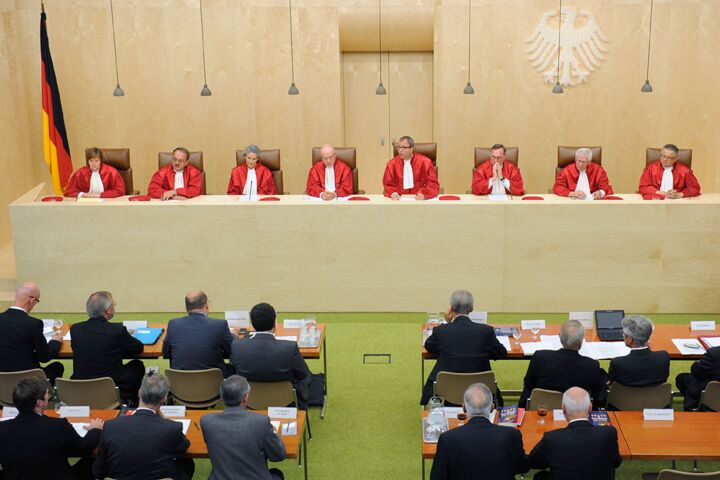
German Constitutional Court Says ‘Yes, But’ to Bailout
Germany’s Constitutional Court said Wednesday that past eurozone bailouts do not violate Germany’s basic law, but imposed conditions on future bailouts. Parliament’s budget committee, it ruled, must approve all future bailouts. This gives the budget committee a veto over how the money in Europe’s European Financial Stability Facility (efsf) is used.
The financial markets sighed with relief that the court did not impose stricter conditions. But, as Ambrose Evans-Pritchard writes, “euphoria is surely misplaced.”
The president of the court, Andreas Vosskuhle, said, “This was a very tight decision. But it should not be mistakenly interpreted as a constitutional blank check authorizing further rescue measures.”
Germany’s parliament is, according to the court ruling, “prohibited from establishing permanent mechanisms under the law of international agreements which result in an assumption of liability for other states’ voluntary decisions, especially if they have consequences whose impact is difficult to calculate.”
So Germany cannot be expected to foot the bill for another nation’s debt, as long as that other nation remains in control of its own budgetary decisions.
Economic analyst for the think tank Open Europe, Raoul Ruparel, notes: “However, the wording used by the court also seems to suggest that joint debt in the eurozone could be constitutionally allowed if it involved a stronger German say over other member states’ fiscal policies. This could set Europe up for a major clash of national democracies in future, should Eurobonds be deemed necessary to hold the single currency together in the long term.”
Evans-Pritchard notes that the court ruling “restricts the ability of Chancellor Angela Merkel to strike rescue deals at EU summits, leaving it unclear how she or any future chancellor could respond to the sort of crisis that blew up in late July of this year when Italian and Spanish bond yields reached danger levels above 6 percent.”
So the court decision throws a spanner in the works and at the same time hints that Germany may be able to fix the mess if it is allowed to dictate the budgets of those countries needing the bailouts. The court’s ruling makes the crisis worse, but it points to the eurozone’s future—surrendering power to Germany in exchange for German money. The crisis will keep getting worse until this happens.
